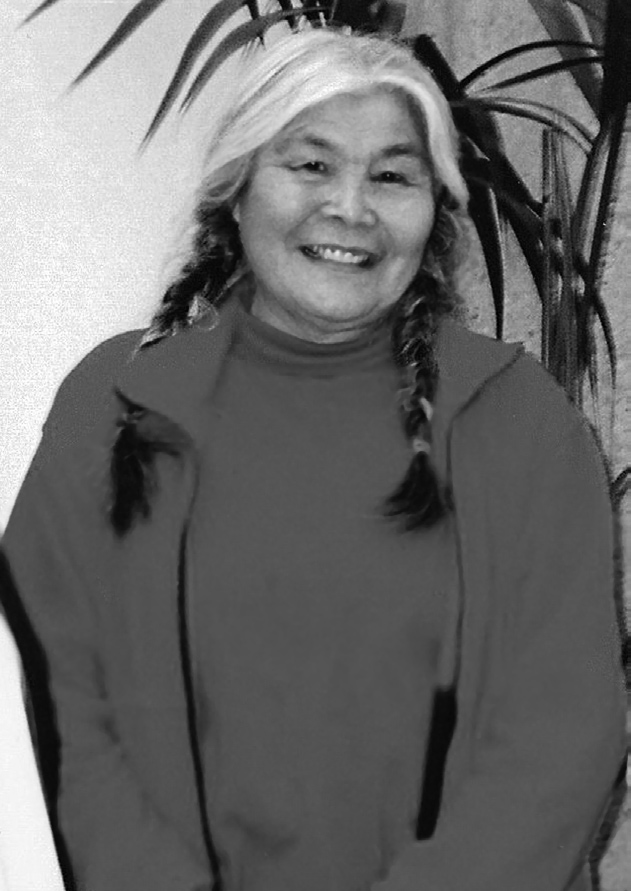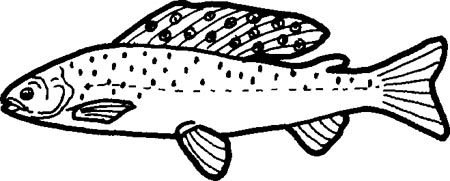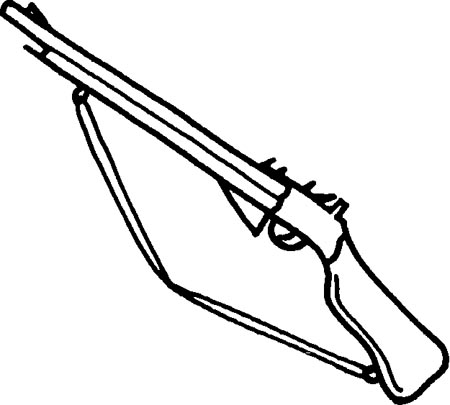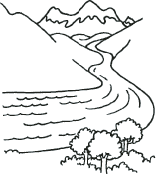Chistochina Ahtna
Listening Exercises
Web Version June 2018
Featured Speaker
Lena Charley
Linguistic Transcription
John. T. Ritter
Series Editor
Cynthea L. Ainsworth, Ph. D.
A production of
Mt. Sanford Tribal Consortium
Native Language Program
Funded by
Creation and Printing of Series funded by Grant #90NL0299 from the Administration for Native Americans, Grant #S356A030043 from the Alaska Native Education Program of the Department of Education (DOE-ANE). Web conversion funded by Grant #S356A170083 from DOE-ANE.
Chistochina Ahtna Listening Exercises
ISBN 0-9760483-6-1
This title is part of the MSTC Ahtna Language Series
© 2009 Mt. Sanford Tribal Consortium. All Rights Reserved
Mt. Sanford Tribal Consortium
HC01 Box 357
Gakona, AK 99586
www.mstc.org
This book is based on a design developed by
Yukon Native Language Centre, John T. Ritter, Director 1977-2017
YNLC illustrations and photos used by permission
Cover design and sound by Paula Elmes, ImageCraft Publications & Design
Web design and sound conversion by AE Data, Inc
Sound and web function correction by Frostline Productions, LLC
Continuity from print to web version by Alaska History Projects, LLC
Foreword
You are using a web representation of a title in the Mt. Sanford Tribal Consortium’s MSTC Ahtna Language Series (2009), which is further discussed in the Introduction. In 2018, the interactive computer CDs that accompanied six in the ten book series were used in conversion to web design. It is hoped that reformatting these important Alaska Native language educational materials will extend the lessons for self-study to learners who make exclusive use of web-access devices other than computers.
Preface — Lena Charley (1930 – )

Lena Charley at Yukon Native Language Centre. (Photo by John Ritter 2003)
The featured speaker of this volume is Elder, Lena Charley. Lena grew up traveling and hunting with dog sleds and dog packs in the Upper Copper and Nabesna River Basins. She was a big game guide, a laborer, and a trapper. She enjoyed living off the land far from the road. In 2005, Senator Georgianna Lincoln presented Lena with a commendation from the Alaska Federation of Natives for her achievements in hunting and her commitment to maintaining a traditional lifestyle. A well known dog musher in east, south-central Alaska, Lena ran the winter endurance Yukon Quest dog race from Fairbanks, Alaska to Whitehorse, Canada in 1985, 1986, and 1988 after her children where grown. She maintained a working dog team until her stroke in the fall of 2005. Her daughter, MSTC President, Evelyn Beeter is also a champion dog musher of many years, and Lena’s great-grandson, Bjorn Beeter, took his first mushing trophy at the age of four.
In 1960, Lena moved to Chistochina to raise her four children while they attended school. Lena and her husband Jerry live on Sinona Creek near the Copper River. She maintains fish and hide processing facilities at her home to produce traditional food for her family and the materials she needs as a much sought-after beadworker. Lena still beads, makes dried fish, hunts, and keeps the old ways. She holds a strong commitment to constantly encourage young people to learn as much as they are able about their rich heritage of language and self-sufficiency.
Introduction
Mt. Sanford Tribal Consortium’s MSTC Ahtna Language Series is the first new, classroom-based language material published for study of the Ahtna language since 1975. MSTC’s first editions (2000) of the Language Lessons in all five dialects were a milestone in materials development for in-school programs and adult independent study of the Ahtna language. The Series (2009) represents the first linguistically supported effort to establish literacy materials for the entire Ahtna region, stimulating the first practical efforts at standardizing spelling in order to make the leap from linguistic description to local Native literacy in Ahtna. These materials demonstrate MSTC’s continuing commitment to language and culture preservation in strong Native communities.
Teachers or independent learners will notice that the lessons are organized with a list of 6 words or phrases that represent the target sounds for practice and a list of sentences demonstrating the target sounds in more realistic speech. Click on words or sentences to hear the featured speaker offer correct pronunciation.
Chistochina Ahtna Listening Exercises for the Upper Ahtna dialect is a new title in the MSTC Ahtna Language Series. All titles in the Series use James Kari’s dictionaries (1975 and 1990) and the Alaska Native Language Center’s Ahtna writing system. This text featured the collaboration of speaker, Lena Charley working with linguist, John Ritter, the founding director of the Yukon Native Language Centre (YNLC). Special thanks are due to linguists, John Ritter, André Bourcier, and Professor Siri Tuttle for their generous advice, as well as YNLC computer specialists, Doug Hunt and Sheila Maisson. Recording and production of the MSTC Ahtna Language Series (2003–09) was partially funded by grants, from the Administration for Native Americans and the Department of Education, and by contributions from MSTC, the editor, the Yukon Native Language Centre, and Paula Elmes, graphic artist with the Alaska Native Knowledge Network, and ImageCraft Publications and Design. The YNLC book design for this text is used by permission, including illustrations by Chris Caldwell, Ted Harrison, Evelyn Kirkaldy, and Susan McCallum.
Cynthea L. Ainsworth, Ph.D.
Editor, MSTC Ahtna Language Series
April 2018
Listening Exercise: [ ł ] and [ l ]
Examples of [ ł ]
 |
| salmon |
łuk’ae |
| smoke |
łet |
| dog |
łic’ae |
Examples of [ l ]
 |
| his/her hand |
ula’ |
| spruce |
ts’ebael |
| butterfly |
lahleli |
Listen to each sentence for the target Upper Ahtna sounds [ ł ] and [ l ].
| The dog is standing. |
Łic’ae nadzen. |
| Give me some tea. |
Tsaey sle’ikaas. |
| Where’s the trap? |
‘Aeł nt’ii? |
| He’s walking on the mountain. |
Dzeł k’et natedaas. |
| Hand me the moccasins. |
Kentsiis sle’ilae. |
| It’s muddy. |
Łic’ak kulaen. |
| It’s still raining. |
Dats’ii łcaan. |
| The butterfly is flying around. |
Lahleli natnett’ax. |
| I am walking around. |
Łoghesyaał. |
| She caught it with a snare. |
Ggaał ‘eł yezdluun. |
Listening Exercise: [ s ] and [ z ]
Examples of [ s ]
 |
| pants |
seł |
| snowshoe |
‘aas |
| grayling |
segele |
Examples of [ z ]
 |
| he/she is sitting |
zdaa |
| he/she wants dry fish |
ba’ ‘eynizen |
| he/she is sitting (up or elevated) |
dazdaa |
Listen to each sentence for the target Upper Ahtna sounds [ s ] and [ z ].
| I roasted a goose. |
Xax zełaets. |
| You (folks) go with me. |
S’eł ‘uhdeł. |
| It became winter for us. |
Ne’eł xay kuzdlaen. |
| Let’s boil the grayling. |
Segele ts’ulaedze. |
| Hand me the moccasins. |
Kentsiis sle’ilae. |
| Where do you stay? |
Ndaa zidaa? |
| I’m sleeping. |
Zestaen. |
| It’s not snowing. |
K’ali’i łyaaze. |
| The man is dancing. |
Denae c’eldzes. |
| He said he’s drinking cold water. |
Tuu ‘estnaan sełnii. |
Listening Exercise: [ x ] and [ gh ]
Examples of [ x ]
 |
| goose |
xax |
| sled |
xał |
| winter |
xay |
Examples of [ gh ]
 |
| he/she walks along |
ghayaał |
| her/his tooth |
ughu’ |
| cottonwood |
t’aghes |
Listen to each sentence for the target Upper Ahtna sounds [ x ] and [ gh ].
| My younger sister is playing. |
Sdaedze’ delghos. |
| It’s windy outside. |
Na’aaxe łts’ii. |
| My tooth hurts. |
Sghu’ nts’aat. |
| I cook a big goose. |
Xax ce’e ‘ełaets. |
| The little boy is crying. |
Ciił ggaay tsagh. |
| He’s walking in the thorns. |
Xos taa natedaas. |
| She’s tanning a skin. |
C’ezes zogh. |
| He’s making a sled for winter. |
Xey gha xał łtsii. |
| My younger sister is walking along. |
Sdaedze’ ghayaał. |
| Leaves are growing. |
C’et’aan’ neyaex. |
Listening Exercise: [ tl ] and [ tl’ ]
Examples of [ tl ]
 |
| his or her friend |
utlaen |
| his brother-in-law |
utlen |
| rabbit hops along |
ggax tles das’es |
Examples of [ tl’ ]
 |
| low-bush cranberries |
ntl’et |
| book |
denehtl’aa |
| beads |
natl’edze |
Listen to each sentence for the target Upper Ahtna sounds [ tl ] and [ tl’ ].
| I’m thirsty for tea. |
Tsaey sdestlaan. |
| You folks chop wood! |
Tsets uhtsaeł! |
| There are no low-bush cranberries. |
Ntl’et kol. |
| Where’s the book? |
Denehtl’aa nt’ii? |
| The house caught on fire. |
Konax nahwdaltlet. |
| He’s sitting on the grass. |
Tl’ogh tazdaa. |
| Hand me the rope. |
Tl’uuł nde’. |
| My friend is sitting with me. |
Stlaen s’eł zdaa. |
| We’re weaving a net. |
Tehbiił ts’etl’uu. |
| She set a snare. |
Ggaał daztl’uun. |
Listening Exercise: [ t ] and [ t’ ]
Examples of [ t ]
 |
| rug, mat, bedroll |
taeł |
| cup |
tutiił |
| water |
tuu |
Examples of [ t’ ]
 |
| charcoal |
t’aes |
| leaves |
c’et’aan’ |
| cottonwood |
t’aghes |
Listen to each sentence for the target Upper Ahtna sounds [ t ] and [ t’ ].
| How are you? |
Nts’e dit’ae? |
| It’s his uncle (father’s brother). |
Utaay sunt’ae. |
| Our dad is walking around. |
Neta’ natedaas. |
| Where’s my cane? |
Stedze’ nt’ii? |
| She is cutting the salmon. |
Łuk’ae t’aas. |
| I want some soup. |
Taas ‘eyne’esen. |
| I am drinking water. |
Tuu estnaan. |
| I roasted some meat. |
C’etsen’ zełt’ae. |
| Leaves are growing. |
C’et’aan’ neyaex. |
| I saw a nest. |
C’et’ox nghał’aen’. |
Listening Exercise: [ ts ] and [ ts’ ] Set #1
Examples of [ ts ]
 |
| beaver |
tsa’ |
| fire wood |
tsets |
| ochre, red dye |
tsiis |
Examples of [ ts’ ]
 |
| plate |
ts’aac |
| blanket |
ts’ede’ |
| bone |
ts’en |
Listen to each sentence for the target Upper Ahtna sounds [ ts ] and [ ts’ ]. Set #1.
| The dog is barking. |
Łic’ae yetsae. |
| I bought a blanket. |
Ts’ede’ ‘ugheskaet. |
| The baby is crying. |
Sc’enggaay tsagh. |
| He’s making a big sled. |
Xał ce’e łtsii. |
| A big spruce is standing. |
Ts’ebael ce’e nedeghi’aa. |
| My head hurts. |
Stse’ nts’aat. |
| I’m listening to you. |
Nde’ests’ak. |
| There’s no sinew. |
Ts’aex kol. |
| He’s walking through wet grass. |
Tl’ogh dełtseli ta ghayaał. |
| It’s cold outside. |
Na’aaxe dezk’ats. |
Listening Exercise: [ ts ] and [ ts’ ] Set #2
Examples of [ ts ]
 |
| beaver |
tsa’ |
| fire wood |
tsets |
| ochre, red dye |
tsiis |
Examples of [ ts’ ]
 |
| plate |
ts’aac |
| blanket |
ts’ede’ |
| bone |
ts’en |
Listen to each sentence for the target Upper Ahtna sounds [ ts ] and [ ts’ ]. Set #2.
| I’d like some tea. |
Tsaey sdestlaan. |
| He’s walking among the spruce trees. |
Ts’ebael ta natedaas. |
| You folks go for roots (Indian potato). |
Tsaas ka ‘uhdeł. |
| They say it’s windy. |
Łts’ii kenii. |
| You folks cut some wood. |
Tsets ohtsaeł. |
| Are you hungry? |
Ditsiin da? |
| We’re eating meat. |
C’etsen’ ts’eyaan. |
| My grandfather is sitting. |
Stsiye zdaa. |
| Give me the blanket. |
Ts’ede’ sle’iłniis. |
| The lady is sitting. |
Ts’akae dazdaa. |
Listening Exercise: [ c ] and [ c’ ]
Examples of [ c ]
 |
| boy |
ciił |
| morning |
sacaan |
| rosehips |
ncuus |
Examples of [ c’ ]
 |
| meat |
c’etsen’ |
| creek |
c’ena’ |
| dog |
łic’ae |
Listen to each sentence for the target Upper Ahtna sounds [ c ] and [ c’ ].
| She is tanning a skin. |
C’ezes zogh. |
| He’s picking some rosehips. |
Ncuus ‘unebe’. |
| Give me the stick. |
Decen sle’ditiis. |
| The man is dancing. |
Denae c’eldzes. |
| Hand me the big axe. |
Cen’aay ce’e nde’. |
| The dog is sitting. |
Łic’ae zdaa. |
| Leaves are growing. |
C’et’aan’ neyaex. |
| The boy is walking. |
Ciił ghayaał. |
| My younger brother is standing. |
Scele nadzen. |
| This is a plate. |
Gaann du’ ts’aac. |
Listening Exercise: [ k ] and [ k’ ]
Examples of [ k ]
 |
| salmonberry |
nkaał |
| fire, matches |
kon’ |
| moccasin |
kentsiis |
Examples of [ k’ ]
 |
| willows |
k’ey’ |
| clouds |
k’os |
| gun |
k’a’ |
Listen to each sentence for the target Upper Ahtna sounds [ k ] and [ k’ ].
| There are no wolves. |
Tikaann kol. |
| Hand me the rifle. |
K’a’ nde’. |
| It’s cold (outside). |
Kwdezk’ats’. |
| The lady is picking berries. |
Ts’akae gigi ‘unebe’. |
| My auntie is eating salmonberries. |
Sak’eye nkaał yaan. |
| I want some salmon. |
Łuk’ae eyne’esen. |
| I have moccasins. |
Kentsiis zełaa. |
| I’m tired. |
Taghastnak. |
| I saw moose tracks. |
Deniigi k’eh nghał’aen’. |
| Make a fire! |
Nakon’ diłk’aas! |
Listening Exercise: [ c ] and [ k ]
Examples of [ c ]
 |
| boy |
ciił |
| morning |
sacaan |
| rosehips |
ncuus |
Examples of [ k ]
 |
| salmonberry |
nkaał |
| fire, matches |
kon’ |
| moccasins |
kentsiis |
Listen to each sentence for the target Upper Ahtna sounds [ c ] and [ k ].
| My younger brother is coughing. |
Scele delkos. |
| Hand me the axe. |
Nde’, cen’aay. |
| It’s foggy. |
‘Aak kulaen. |
| It’s still raining. |
Dats’ii łcaan. |
| The big boy is standing. |
Ciił ce’e nadzen. |
| It’s sunny. |
Kesaadi’aan. |
| I saw a bull moose. |
Nicuunn nghał’aen’. |
| I’m going to buy a big plate. |
Ts’aac ce’e ‘udaskaedi. |
| My younger brother is walking to the creek. |
Scele c’ena’ ts’e’ ghayaał. |
| The boys are playing. |
Ciłkaey ‘en delghos. |
Listening Exercise: [ g ] and [ gg ]
Examples of [ g ]
 |
| this one |
gaann du’ |
| pike fish |
c’ulgaadzi |
| grayling |
segele |
Examples of [ gg ]
 |
| her/his arm |
uggaann’ |
| a snare |
ggaał |
| worms, bugs |
gguux |
Listen to each sentence for the target Upper Ahtna sounds [ g ] and [ gg ].
| The mosquito stung me. |
Kuggaedi sezggot. |
| This is her/his arm. |
Gaann du’ uggaann’. |
| The lady picks berries. |
Ts’akae gigi ‘unebe’. |
| The baby rabbit is sleeping. |
Ggax ggaay ztaen. |
| The wild celery is growing. |
Gguus neyaex. |
| My mom is sitting right here. |
Snaan gaas ghezdaa. |
| Scale the fish. |
Tsabaey ‘iłgguus. |
| The fox has a long tail. |
Naggets’i uce’ diłnaes. |
| My knee is sore. |
Sggot nts’aat. |
| The little bird is singing. |
Ts’eggaagga ggaay c’ededlii. |
Listening Exercise: [ c’ ] and [ k’ ]
Examples of [ c’ ]
 |
| meat |
c’etsen’ |
| creek |
c’ena’ |
| dog |
łic’ae |
Examples of [ k’ ]
 |
| willows |
k’ey’ |
| gun, rifle |
k’a’ |
| (right) now |
k’adii de’ |
Listen to each sentence for the target Upper Ahtna sounds [ c’ ] and [ k’ ].
| The child is playing outside. |
Sc’aen na’aaxe delghos. |
| I saw my auntie yesterday. |
K’adan’a sak’eye nghał’aen’. |
| The dog is sitting in the willows. |
Łic’ae k’ey’ tazdaa. |
| The lady is tanning a hide. |
Ts’akae c’ezes zogh. |
| The child is playing in mud. |
Sc’aen łic’ak ta delghos. |
| The man has no gun. |
Denae uk’aa’ kol. |
| Where’s the porcupine quill? |
Nt’ii nuuni c’oxe’? |
| There are caribou tracks. |
Udzih k’eh kulaen. |
| My younger brother is walking to the creek. |
Scele c’ena’ ts’e’ ghayaał. |
| She sings nicely. |
Ugheli ts’e’ c’ededlii. |
Noun Index
Mt. Sanford Tribal Consortium’s MSTC Ahtna Language Series is the first published attempt to standardize spelling in Ahtna words to assist students in recognizing vocabulary. In 1975 the Alaska Native Language Center (ANLC) published the Ahtna Noun Dictionary by James Kari and Millie Buck. It offers the best documentation of different dialectal forms and organizes words by categories, like animals, seasons, and household objects, which makes it a very good tool for beginners. Kari’s Ahtna Athabaskan Dictionary was published by ANLC in 1990. Its index may offer different words or spellings for nouns in this book. If the forms in both texts are similar, both references are included below.
This Noun Index is an English-initial, alphabetized list to familiar nouns. References for the nouns in both of Kari’s dictionaries are listed with dialectal information when it is available. “M” or “U” refer to Mentasta or Upper Ahtna dialectal forms. “C” or “L” refer to Central or Lower Ahtna dialectal forms. If only one dictionary is referenced, the Upper Ahtna form was not available in the 1990 English-Ahtna index. Use Find in your browser to locate words in this list as they appear in sentences in the text.
| baby |
sc’enggaay |
75:55/75:74/90:481 |
p. 17 |
| beads |
natl’edze |
(M)75:114 |
p. 10 |
| beaver |
tsa’ |
75:2/90:484 |
p. 16, 19 |
| berries (blueberry) |
gigi |
75:39/(M)75:40/90:485 |
p. 26, 32 |
| bird |
ts’eggaagga |
(M)75:15 |
p. 32 |
| blanket |
ts’ede’ |
(C, U)75:106/90:486 |
p. 16, 17, 19, 20 |
| bone |
ts’en |
75:60/90:488 |
p. 16, 19 |
| book |
denehtl’aa |
(M)75:138/90:488 |
p. 10, 11 |
| boy |
ciił |
75:54/90:488 |
p. 8, 22, 23, 28, 29 |
| boys |
ciłkaey |
75:54 |
p. 29 |
| butterfly |
lahleli |
(M)75:27/90:492 |
p. 1, 2 |
| caribou |
udzih |
(C, M)75:2/90:493 |
p. 35 |
| charcoal |
t’aes |
75:97/90:495 |
p. 13 |
| child |
sc’aen |
75:55/90:496 |
p. 35 |
| clouds (cloudy) |
k’os |
(C, U)75:89/90:498 |
p. 25 |
| cottonwood |
t’aghes |
(C, L)75:34/90:502 |
p. 7, 13 |
| cranberry (low-bush) |
ntl’et |
(M)75:40/90:485 |
p. 10, 11 |
| creek |
c’ena’ |
75:77 |
p. 22, 29, 34, 35 |
| cup |
tutiił |
75:150/90:504 |
p. 13 |
| dog |
łic’ae |
75:8/90:510 |
p. 1, 2, 17, 22, 23, 34, 35 |
| dry fish |
ba’ |
75:144/90:512 |
p. 4 |
| fire (matches) |
kon’ |
75:97/90:520/90:551 |
p. 25, 28 |
| fire wood (wood) |
tsets |
75:32/90:623 |
p. 11, 16, 19, 20 |
| fish |
tsabaey |
75:10/90:520 |
p. 32 |
| goose |
xax |
75:15/90:528 |
p. 5, 7, 8 |
| grass |
tl’ogh |
75:37/90:529 |
p. 11, 17 |
| grayling |
segele |
(M)75:10/90:529 |
p. 4, 5, 31 |
| gun (rifle) |
k’a’ |
75:116/90:531 |
p. 25, 26, 34 |
| Indian potatoes |
tsaas |
75:146/90:539 |
p. 20 |
| leaves (plant) |
c’et’aan’ |
(M)75:30/90:545 |
p. 8, 13, 14, 23 |
| man |
denae |
75:55/90:550 |
p. 5, 23, 35 |
| meat |
c’etsen’ |
75:141/90:551 |
p. 14, 20, 22, 34 |
| moccasins |
kentsiis |
75:107/90:553 |
p. 2, 5, 25, 26, 28 |
| moose |
deniigi |
75:4/90:554 |
p. 26 |
| moose (bull) |
nicuunn |
(M)75:4/90:554 |
p. 29 |
| mosquito |
kuggaedi |
75:29/90:554 |
p. 32 |
| mountain |
dzeł |
(M)75:81/90:555 |
p. 2 |
| nest |
c’et’ox |
75:25/90:558 |
p. 14 |
| net |
tehbiił |
75:120/90:558 |
p. 11 |
| ochre (red dye) |
tsiis |
75:83/75:110/90:561 |
p. 16, 19 |
| pants |
seł |
(C, L, M)75:107/90:564 |
p. 4 |
| pike fish |
c’ulgaadzi |
(U)75:10/90:567 |
p. 31 |
| plate (dish) |
ts’aac |
(M)75:150/90:568 |
p. 16, 19, 23, 29 |
| porcupine |
nuuni |
75:6/90:570 |
p. 35 |
| rabbit |
ggax |
75:6/90:574 |
p. 10, 32 |
| rope |
tl’uuł |
75:126/90:580 |
p. 11 |
| rosehips |
ncuus |
(U)75:42/90:580 |
p. 22, 23, 28 |
| rug (mat, bedroll) |
taeł |
75:134/90:551 |
p. 13 |
| salmon |
łuk’ae |
75:11/90:581 |
p. 1, 14, 26 |
| salmonberry (cloudberry) |
nkaał |
75:40/90:485 |
p. 25, 26, 28 |
| skin (hide) |
c’ezes |
75:111/90:589 |
p. 8, 23, 35 |
| sled |
xał |
(C, L)75:156/90:590 |
p. 7, 8, 17 |
| smoke |
łet |
75:98/90:591 |
p. 1 |
| snare |
ggaał |
75:117/90:592 |
p. 2, 11, 31 |
| snowshoe |
‘aas |
75:155/90:592 |
p. 4 |
| soup |
taas |
75:145/90:594 |
p. 14 |
| spruce tree |
ts’ebael |
(M)75:34/90:597 |
p. 1, 17, 20 |
| stick |
decen |
(M)75:32/90:599 |
p. 23 |
| tea |
tsaey |
75:148/90:606 |
p. 2, 11, 20 |
| thorns |
xos |
75:32/90:608 |
p. 8 |
| thread (sinew) |
ts’aex |
75:114/90:588 |
p. 17 |
| trap |
‘aeł |
75:117/90:612 |
p. 2 |
| water |
tuu |
75:77/90:619 |
p. 5, 13, 14 |
| wild celery |
gguus |
(C, L)75:36/90:495 |
p. 32 |
| willows |
k’ey’ |
(M)75:35/90:622 |
p. 25, 34, 35 |
| winter |
xey |
(M)75:92/90:623 |
p. 5, 7, 8 |
| wolves |
tikaann |
75:7/90:623 |
p. 26 |
| woman (lady) |
ts’akae |
75:54/90:623 |
p. 20, 26, 32, 35 |
| worm (bug) |
gguux |
75:27/90:624 |
p. 31 |
|
|
|
play single selection
- select section with drop down
- click on play button
loop a section
- click loop button
- select section with drop down
|
|























